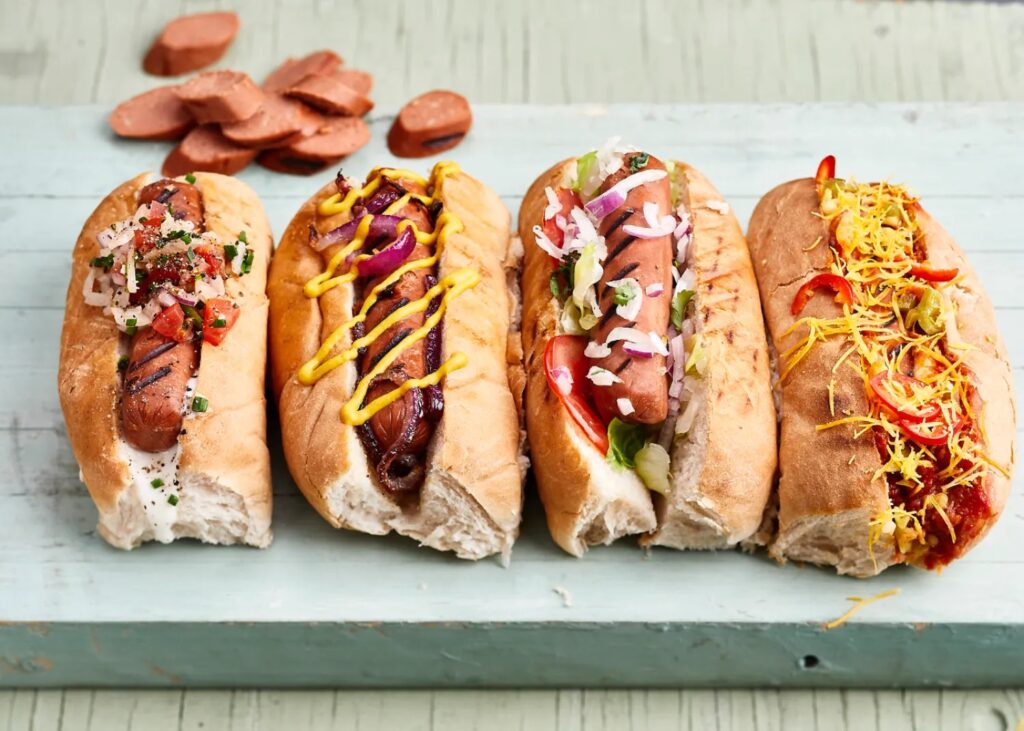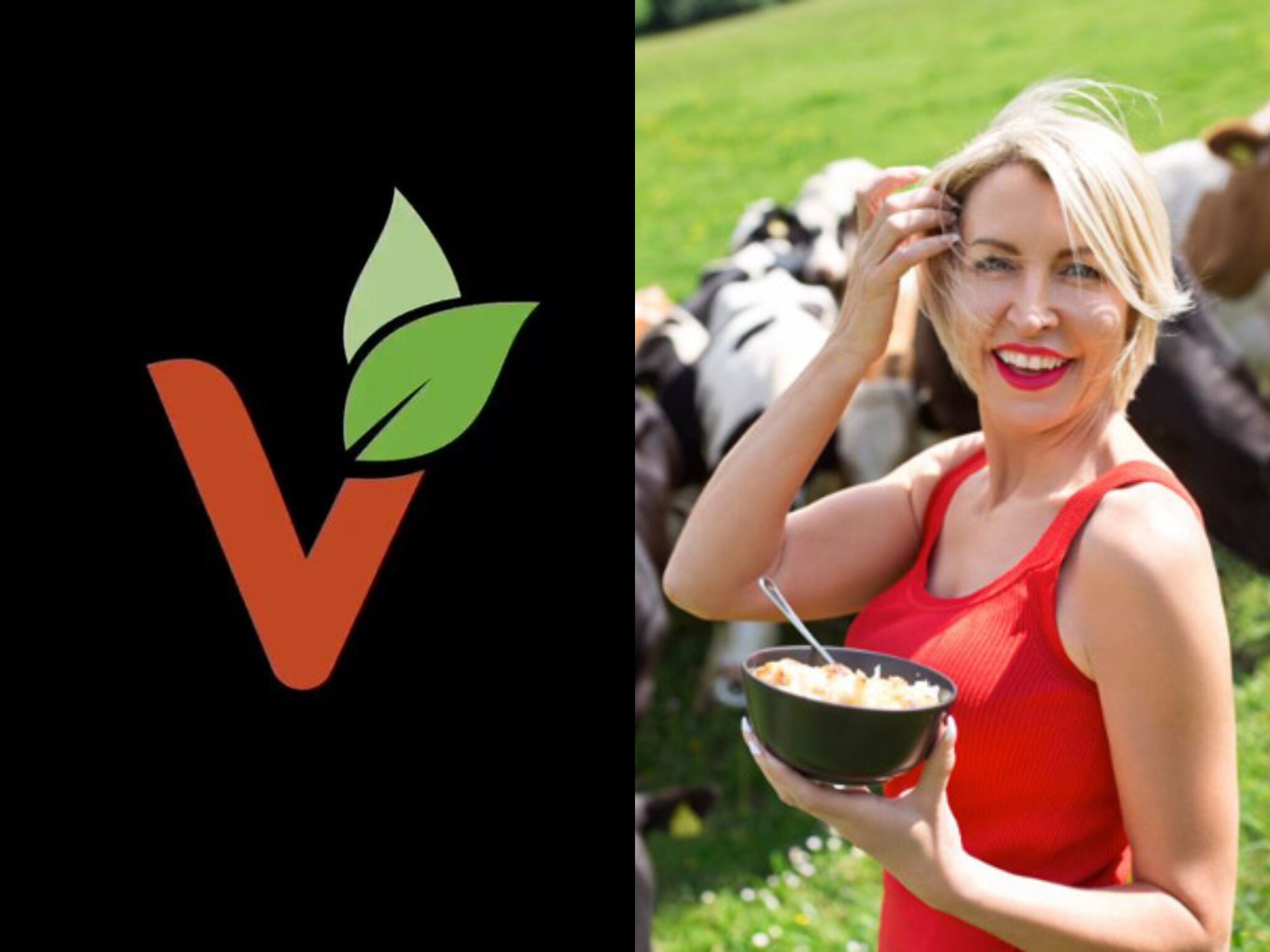VBites: Heather Mills Rescues Her Alt-Meat Brand a Month After Entering Administration
6 Mins Read
British entrepreneur Heather Mills has secured a rescue deal for her plant-based brand VBites, buying the assets of the business from administrators for £1M and waiving nearly £5M of debt owed to her, a month after first announcing that the company was bankrupt.
Just a month ago, VBites entered administration and seemed likely to end its 30-year run. But in a surprising turn of events, the British plant-based company is back on the map.
Founder Heather Mills has fended off five competing offers to buy the assets of the collapsed business for £1M through her limited company Vegan Solo Consulting. As part of the deal, the entrepreneur has additionally waived £4.8M owed to her as a secured creditor, which will help secure a better return for all creditors, as first reported by the Grocer.
“I was devastated when the company was forced unnecessarily, with three days’ notice, into administration,” said Mills. “It was agreed between both shareholders that we would always give each other three months’ notice, knowing the figures 6 months ahead set for the company, so I was doubly shocked that it went straight into administration, even though I gave viable solutions.”
She added: “But I strongly believed the next-generation technology VBites had developed and the work it had done still had a huge role to play in assisting the transition of the food market to a healthier and more sustainable place.”
Heather Mills relocates, rebuilds staff base

Founded in 1993, VBites brought in Interpath Advisory in mid-December after struggling with cashflow issues, fundraising and a drop in consumer demand on the back of the cost-of-living crisis. According to documents filed by the company earlier this month, the business collapsed with a total debt of £8.37M, with trade creditors owed £1.86M and its 84 employees owed over £415,000 (they are expected to be paid back in full). The company owed money to 153 creditors, from food suppliers and packaging companies to lawyers and energy firms – at least part of this debt is set to be repaid.
Meanwhile, German firm Nature’s Richness Holdings (the new foods division of Pfeifer & Langen) holds 34% of VBites’ shares currently – it had purchased a 25% stake in 2021. Nature’s Richness was owed £2.5M at the time of administration, with repayment in full expected.
Mills, who owns the remaining 66% of the company’s shares through her firm Seckloe, was selected as the preferred bidder by Interpath as her offer “represented the best overall outcome for creditors of the company in the circumstances”. The asset-only deal included the plant and machinery, stock, IP and social media accounts. But it didn’t secure the jobs of the 64 employees who were retained to help with the administration, or the 20 let go at the time of appointing Interpath.
Some employees have since quit the business too, with CEO David Wood joining fellow British plant-based meat manufacturer MYCO as its chief in December. Mills said she was “not happy being told that many of my loyal and hard-working staff were losing their jobs” during the firm’s collapse. “I was cut out of everything,” she said. “This is why I have chosen to resurrect the company myself, at great personal expense, and take control of the operations, personally moving back to the northeast to ensure we are still able to make a positive contribution to the future of our global food economy.”
Millshe has already re-employed 40 staff members, and has expressed hope to continue rebuilding the company’s workforce, as its factories in Peterlee, County Durham and Corby, Northamptonshire remain operational. “We agreed a rent-free period at the Peterlee property in the administration with the landlord [which is Duo Renovations Limited, also owned by Heather Mills], which was contingent on the transaction being executed,” said Interpath Advisory.
“This facilitated the continuation of trade and subsequent ability to finalise a sale. As a condition of the executable transaction with the purchaser, Seckloe has agreed to waive the entirety of its debt of £4.8M in the administration, considerably improving the overall returns to creditors.”
VBites turns over a new leaf

VBites’ rescue is reminiscent of British alt-meat player Meatless Farm‘s story from last year – after announcing it was entering administration, the brand was saved by fellow plant-based meat player VFC. Since then, VFC has taken over pie manufacturer Clive’s Purely Plants too, before rebranding into the Vegan Food Group this month to expand its footprint as a holding company, with the aim of becoming “a vegan Unilever”.
VBites has previously stated similar intentions, hoping to turn northeast England into the “Silicon Valley of plant-based foods” after buying the Peterlee site – a former Walkers crisp factory – in 2019. Last year, Mills rescued Boston, England-based meat alternatives manufacturer Plant & Bean too, but it was amidst VBites’ cashflow loss.
In a statement announcing the administration, Mills had blamed a combination of “corporate greed and poor management”, increasing ingredient and energy costs, misinformation about the plant-based industry, the cost-of-living crisis, and the “current state of the manufacturing economy” in the UK. “It is unsurprising and inevitable that where profits are to be made, amorphous corporate entities will follow and unfortunately their practices too often undermine the entrepreneurial spirit, flexibility and agility of movement that saw plant-based entrepreneurs have so much success,” she explained.
“There is too often a tendency to treat their investments as short-term experiments and opportunistic flights of fancy, embalm them in restrictive governance and then either walk away or enforce a takeover when the market hits a bump,” Mills added. “There is a balance – we need capital to grow, but it needs to be well-intended capital and it needs to be married with strategic vision and belief in a brighter future.”
The 56-year-old criticised certain celebrities who have backed the meat and dairy industries, but “should take their responsibilities as influencers much more seriously” – actresses Aubrey Plaza and Queen Latifah have both come under fire for featuring in dairy commercials. “The plant-based industry needs to take a lead from the dairy industry in unifying its voice, but as a force for good and promotion of the facts – as opposed to a litany of lies and misinformation,” Mills said.
“We also need to work harder to demonstrate the long-term profitability of plant-based farming and manufacturing to the meat and dairy industries. If you want to enter the house, you need the keys – and working with the incumbent players in our food sector is the only way to effect meaningful and sustainable change.”
The UK plant-based sector has been hit hard: inflation made meat-free among the worst-performing grocery categories last year, with sales down by £38.4m, and volume falling by 4.2%. Despite that, it’s still Europe’s second-largest vegan market. And as the sector consolidates, some believe it could bounce back this year. With 140+ products in 28 countries – including vegan sausages, burgers, fish fingers and cheeses – VBites will be hoping to be a part of that.
“We have already developed a version 2.0 of plant-based food – soon to launch – that we believe will be a market mover, and will help all of those people attempting to make a flexitarian or plant-based transition to achieve their goals more easily, both with variety and deliciousness,” revealed Mills.
“Watch this space,” she added, alluding to the brand’s subtly new logo. “VBites is turning over a new leaf.”



